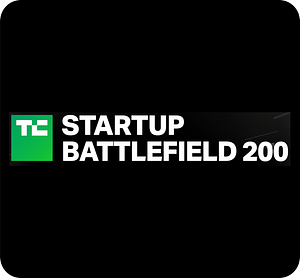Retail and BankingDiscovering the Financial Impact of a Retail Loyalty Program Objective Determine the actual financial impact of the retailer's loyalty program by comparing customer spending patterns before and after program enrolment.Overview Using Omnisient, the...
Business to business partnerships involve partnering with other brands and companies to achieve various objectives. It ranges from growth through co-selling and promoting to creating entire new revenue streams like data monetization or product innovation.
In South Africa, Discovery Health has to be lauded as one of the local pioneers to first identify “partnership” opportunities. They gained health data from gyms and retailers to incentivise healthy living in their customers, and reduce insurance claims.
The Opportunities of B2B Partnerships
Here are some of the reasons why business to business partner marketing will continue to trend in South Africa:
- Improved customer insights. Data sharing is pivotal to improving customer insights. Knowing what your clients are interested in outside of their engagement with your business is very valuable for innovation.
- Expand market reach. Joint offerings can leverage another party’s brand equity and reach, and help brands grow market share and increase loyalty.
- Direct marketing with consent. Most companies have gained or are gaining consent to speak to their own customers, so letting them speak to their customers on your behalf is a smart way to target “new” prospects at scale.
- Data monetisation is a valuable new revenue stream, but you cannot determine its value unless you test it with potential buyers
The Privacy Pitfalls of B2B Partnerships
At the same time that B2B partnerships are hitting a growth spurt, privacy regulations are finally starting to be enforced to ensure personal data is protected and companies put processes in place to avoid breach risks and use data for legitimate purposes.
So, we have two things that are both valuable and increasing in importance at the same time, but also creating some challenges that have to be overcome if they are to coexist in harmony.
Partnerships are big business but they can also be costly if you don’t evaluate potential partners for synergy first or understand the size of the prize before committing resources.
This is generally easy to do with data, but this is where POPIA and GDPR come into play.
The Two Challenges All Businesses Must Address Immediately
- Consent: If you don’t have consent to share the customers’ personal information with “potential” partners, how do you establish the business case and determine if the partnership is likely to present a growth opportunity?
- Breach risk: If you do have consent and you send the data to the potential partner for analysis or they have to send it to you, how do you get past the trust issue that data won’t be misappropriated?
There is an additional consideration that is not privacy-related, but still poses a significant business risk:
Leaking intellectual property (IP). Very few businesses want to share their customer data with another business before they have even established the value of the partnership. This “Trust Gap” can be so onerous that many companies who want to reap the rewards of partnering, don’t even get out of the gates.
How the Omnisient Platform Changes the B2B Partnership Game
We have harnessed POPIA privacy protocols within our technology stack. This enables data sharing parties (potential marketing partners) to eliminate the risks of consent and breach, while also protecting their IP.
- You no longer have to share your customers personal data to perform an overlap analysis with the potential partner
- You no longer have to transfer actual data to the potential partner
- And you can add other insightful data layers to better analyse or evaluate the “potential partners” data without contracting with the 3rd party or sharing data with them
Due to the fact that the data sharing parties do not share personal information to begin with, and neither party sharing data can re-identify data subjects, the challenge of consent is eliminated, because the data subject’s data is still safely stored in your environment.
Omnisient provides an “On Premise” application for data sharing parties to hash data. This is a process designed to make re-identification of the original value impossible. Once the data has been hashed, it is moved into the Omnisient Azure Cloud. On the way into the cloud – before the data moves into a data lake – multiple salting and hashing iterations are applied to create what we call a Secure Compounded Matching Token (SCMT).
- Consent is not required because personal information (PI) is not shared. The SCMT creates the ability to match customer data without any personal information being made available to another party.
- Breach risk is avoided and IP protected. The cloud environment and BI tools in the platform make it easy for both parties to analyse the “non-PI” data in a neutral trusted environment where the data cannot be extracted. This means breach risk is totally avoided as physical data is not shared and as a result IP is also protected. Both parties can delete their own data at any time, and have full control over sharing the insights on the platform.
- Partnership evaluation is simplified. Omnisient makes 3rd party consumer insights available that make partnership evaluation simple. Lookalike models have been created in the platform to instantly see how many prospects are available in your potential partners base that look like your best customers.
- Campaigns are enabled without personal data. Once a commercial agreement is in place and the parties are able to exchange insights to execute campaigns to target audiences without personal information or raw data changing hands. This can be done through our proprietary processes that eliminate breach and privacy risks, while ensuring campaigns are effectively executed.
Take Advantage of B2B Partnerships Safely, and Securely
Come and talk to us about how Omnisient can transform the way you partner and innovate.

About the Author
Julian Diaz is Omnisient’s CMO. Julian is a B2B tech marketer for start-ups with over 20 years of experience marketing in USA, UK, Europe and South Africa.













